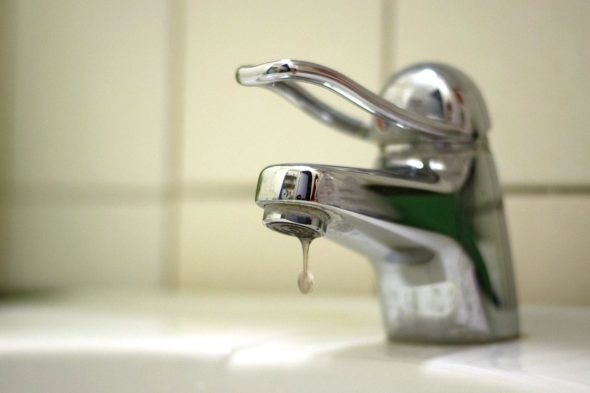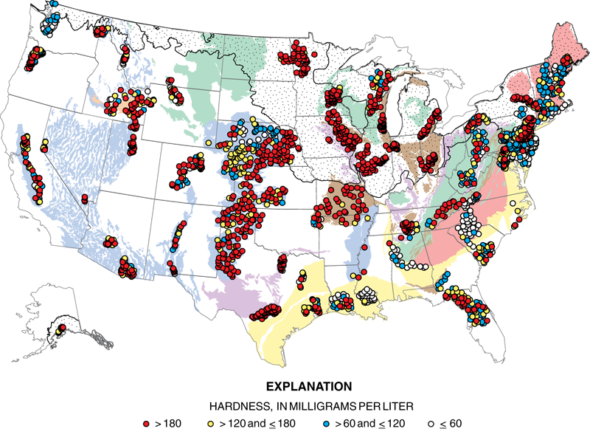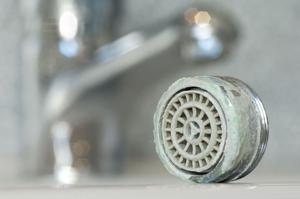Using a water softener system has been shown to extend the life expectancy of plumbing because it eliminates scale build-up in pipes and fittings. Not only does hard water clog your plumbing but it also reduces the efficiency of your water heater and other household appliances.
You know that the water you are using is hard if soaps and detergent do not dissolve or lather easily and you have probably noticed that your once shiny silverware now appear dull and do not have that sparkle after washing them. Hard water is also known to dry the skin and hair and leave white mineral deposits on your surfaces.
Some homeowners don’t mind using hard water, aside from the annoying scale buildup in the plumbing system. However, if increasing the efficiency of your appliances, plumbing, and heating is your goal installing a whole house water softener with a special filter for iron will get the job done.
The whole house water softener with a special iron filter, is a chemical and maintenance-free process designed to remove water hardness including iron that causes the red staining and rust in your toilet bowls, sinks, and appliances. The system eliminates that iron-tasting and rotten egg odor which originates from well and city water that has high amounts of iron and manganese.
A water softener with an iron water filter unit is economical, it requires much less space and it’s easy to operate because it replenishes itself on demand in a process that washes the stored iron out of the filter bed and down the drain. Every home needs something unique to their water needs and therefore only after a water analysis is performed should a water treatment system be purchased.
A reverse osmosis water softener is a home water filtration system that uses pressure to force water through a semi-permeable membrane that allows it to pass through while blocking up to 99% of impurities and contaminants. In addition to producing safe, clean, and the purest quality of water, the reverse osmosis water softener is convenient to use. It is easy to clean and only requires a periodic replacement of disposable filters.
A reputable water conditioning company will be able to assess your family’s needs and install a water treatment solution that is designed specifically for your water and usage. Quality drinking water is a need for all homes. A proper water softener can not only improve your homes water quality.
At Reynolds Water Conditioning Company, we are here to help make sure our clients don’t buy water treatment systems that they don’t need. We are here to make sure you find a water softening system that gives you the results you are looking for, whether it is to remove iron or odor from you water; we have a solution that will help! For more information contact our experts at 800.572.9575 or at our website https://reynoldswater.com.




